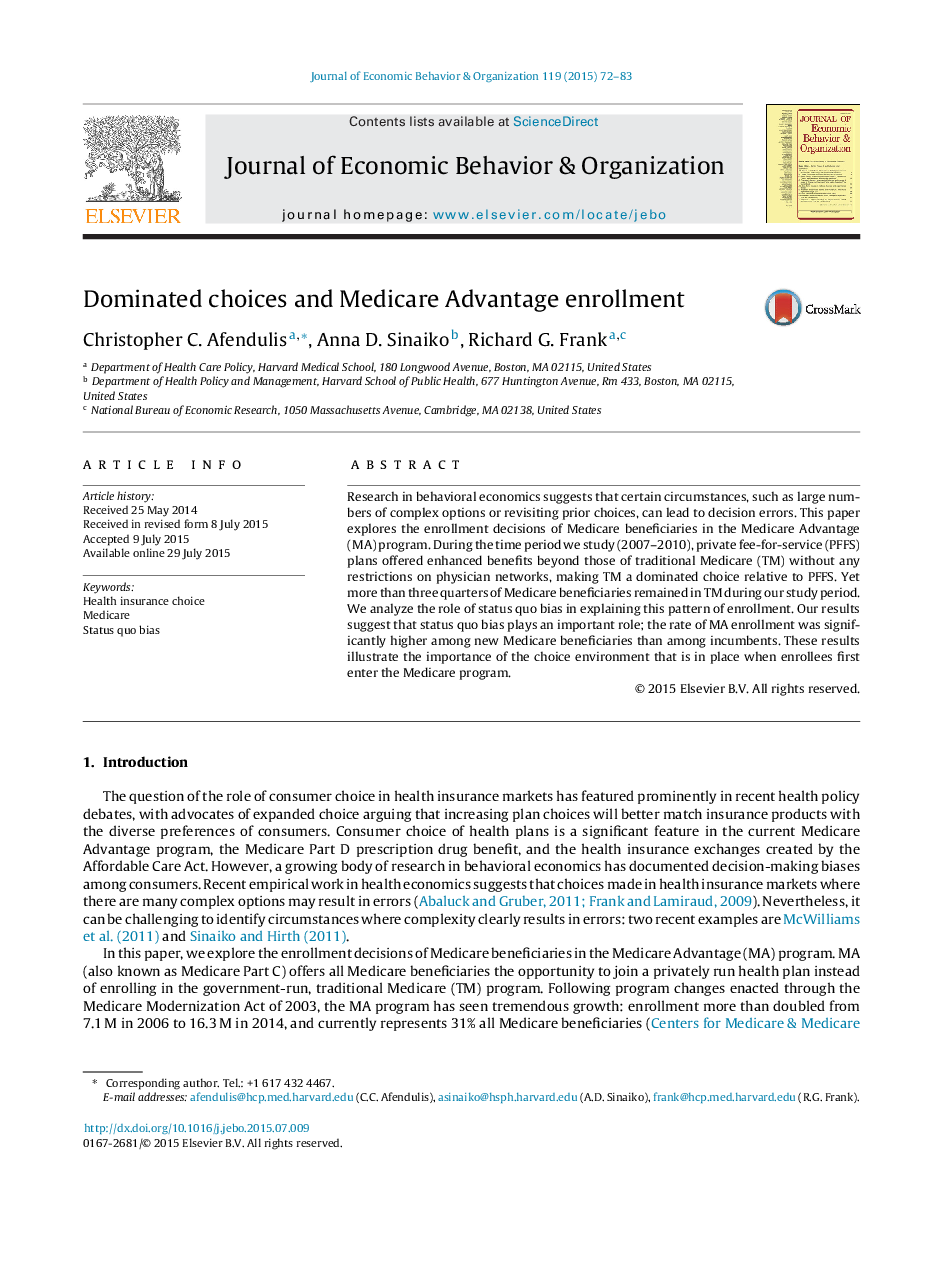| Article ID | Journal | Published Year | Pages | File Type |
|---|---|---|---|---|
| 7242883 | Journal of Economic Behavior & Organization | 2015 | 12 Pages |
Abstract
Research in behavioral economics suggests that certain circumstances, such as large numbers of complex options or revisiting prior choices, can lead to decision errors. This paper explores the enrollment decisions of Medicare beneficiaries in the Medicare Advantage (MA) program. During the time period we study (2007-2010), private fee-for-service (PFFS) plans offered enhanced benefits beyond those of traditional Medicare (TM) without any restrictions on physician networks, making TM a dominated choice relative to PFFS. Yet more than three quarters of Medicare beneficiaries remained in TM during our study period. We analyze the role of status quo bias in explaining this pattern of enrollment. Our results suggest that status quo bias plays an important role; the rate of MA enrollment was significantly higher among new Medicare beneficiaries than among incumbents. These results illustrate the importance of the choice environment that is in place when enrollees first enter the Medicare program.
Keywords
Related Topics
Social Sciences and Humanities
Economics, Econometrics and Finance
Economics and Econometrics
Authors
Christopher C. Afendulis, Anna D. Sinaiko, Richard G. Frank,
